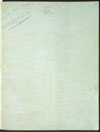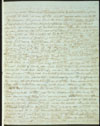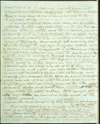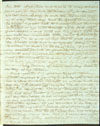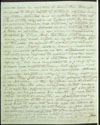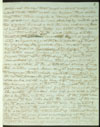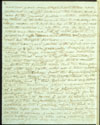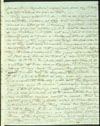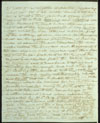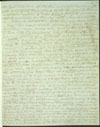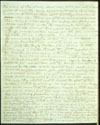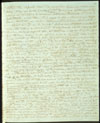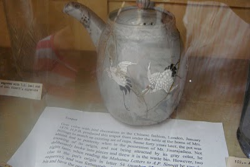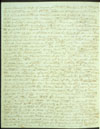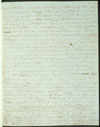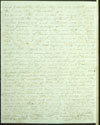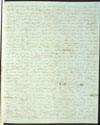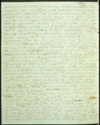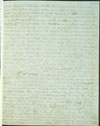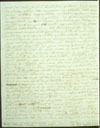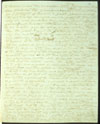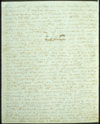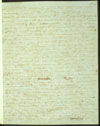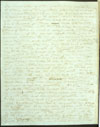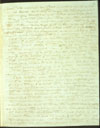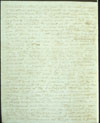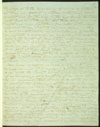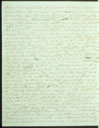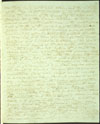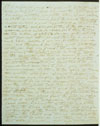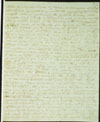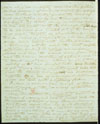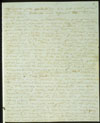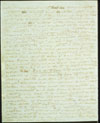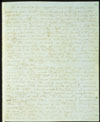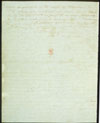Pablo's Sandbox: Difference between revisions
Pablo Sender (talk | contribs) |
Pablo Sender (talk | contribs) |
||
| Line 591: | Line 591: | ||
{{Col-begin|width=98%}} | {{Col-begin|width=98%}} | ||
{{Col-break|width=55%}} | {{Col-break|width=55%}} | ||
<s>upon us; if we in ought resembled the picture he has drawn; if we could submit for a single hour to stand silently under the load of such imputations as he has thrown upon us in his September letter; verily we should deserve to lose all credit with the [[Theosophist]]s! We ought to be dismissed and hunted out of the [[Theosophical Society|Society]] and people's thoughts as charlatans and impostors — wolves in sheep's clothing, who come to steal away men's hearts with mystic promises, entertaining all the while the most despotic intentions, seeking to enslave our confiding [[chela]]s and turn the masses away from truth and the "divine revelation of nature's voice" to blank and "dreary atheism"; — i.e. a thorough disbelief in the "kind, merciful Father and Creator of all" ([[evil]] and misery, we must suppose?) who lolls from the [[eternity]], reclining with his backbone supported on a bed of incandescent meteors, and picks his teeth with a lightning fork. . . . | <s>upon us; if we in ought resembled the picture he has drawn; if we could submit for a single hour to stand silently under the load of such imputations as he has thrown upon us in his September letter; verily we should deserve to lose all credit with the [[Theosophist]]s! We ought to be dismissed and hunted out of the [[Theosophical Society|Society]] and people's thoughts as charlatans and impostors — wolves in sheep's clothing, who come to steal away men's hearts with mystic promises, entertaining all the while the most despotic intentions, seeking to enslave our confiding [[chela]]s and turn the masses away from truth and the "divine revelation of nature's voice" to blank and "dreary atheism"; — i.e. a thorough disbelief in the "kind, merciful Father and Creator of all" ([[evil]] and misery, we must suppose?) who lolls from the [[eternity]], reclining with his backbone supported on a bed of incandescent meteors, and picks his teeth with a lightning fork. . . . | ||
Indeed, indeed, we have enough of this incessant jingle on the Jew's harp of Christian revelation! | Indeed, indeed, we have enough of this incessant jingle on the Jew's harp of Christian revelation!</s> | ||
[[Morya|M.]] thinks that the Supplement ought to be enlarged if necessary, and made to furnish room for the expression of thought of every [[Theosophical Lodge|Branch]], however diametrically opposed these may be. [[The Theosophist (periodical)|The Theosophist]] ought to be made to assume a distinct colour and become a unique specimen of its own. We are ready to furnish the necessary extra sums for it. I know you will catch my idea however hazily expressed. I leave our plan entirely in your own hands. Success in this will counteract | [[Morya|M.]] thinks that the Supplement ought to be enlarged if necessary, and made to furnish room for the expression of thought of every [[Theosophical Lodge|Branch]], however diametrically opposed these may be. [[The Theosophist (periodical)|The Theosophist]] ought to be made to assume a distinct colour and become a unique specimen of its own. We are ready to furnish the necessary extra sums for it. I know you will catch my idea however hazily expressed. I leave our plan entirely in your own hands. Success in this will counteract | ||
Revision as of 16:40, 23 November 2020
| Quick Facts | |
|---|---|
| People involved | |
| Written by: | Koot Hoomi |
| Received by: | A. P. Sinnett |
| Sent via: | unknown |
| Dates | |
| Written on: | unknown |
| Received on: | October 1882 |
| Other dates: | unknown |
| Places | |
| Sent from: | Phari-Jong monastery |
| Received at: | Simla, India |
| Via: | unknown |
This is Letter No. 92 in The Mahatma Letters to A. P. Sinnett, 4th chronological edition. It corresponds to Letter No. 54 in Barker numbering. See below for Context and background.
< Prev letter chrono
Next letter chrono >
< Prev letter Barker
Next letter Barker >
Cover sheet
|
Recd Simla Oct 1882
|
NOTES:
|
Page 1 transcription, image, and notes
|
|
NOTES:
|
Page 2
|
|
|
NOTES:
|
Page 3
|
|
NOTES:
|
Page 4
|
|
NOTES:
|
Page 5
|
disfigured. He says that people will not accept the whole truth; that unless we humour them with a hope that there may be a "loving Father and creator of all in heaven" our philosophy will be rejected a priori. In such a case the less such idiots hear of our doctrines the better for both. If they do not want the whole truth and nothing but the truth, they are welcome. But never will they find us — (at any rate) — compromising with, and pandering to public prejudices. Do you call this "candid" and — honest "from a European standpoint"? Read his letter and judge. The truth is, my dear friend, that notwithstanding the great tidal wave of mysticism that is now sweeping over a portion of the intellectual classes of Europe, the Western people have as yet scarcely learned to recognise that which we term wisdom in its loftiest sense. As yet, he only is esteemed truly wise in his world, who can most cleverly conduct the business of life, so that it may yield the largest amount of material profit — honours or money. The quality of wisdom, ever was, and will be yet for a long time — to the very close of the fifth race — denied to him who seeks the wealth of the mind for its own sake, and for its own enjoyment and result without the secondary purpose of turning it to account in the attainment of material benefits. By most of your gold worshipping countrymen our facts and theorems would be denominated fancy-flights, the dreams of madmen. Let the Fragments |
NOTES:
|
Page 6
|
and even your own magnificent letters now published in Light, fall into the hands, and be read by the general public — whether materialists or theists or Christians; and ten to one every average reader will curl his lip with a sneer; and with the remark — "all this may be very profound and learned but of what use is it in practical life?" — dismiss letters and Fragments from his thoughts for ever. But now your position with C.C.M. seems changing, and you are gradually bringing him round. He longs sincerely to give Occultism another trial and — is "open to conviction"; we must not disappoint him. But, I cannot undertake to furnish either them or even yourself with new facts until all I have already given is put into shape from the beginning, (vide Mr. Hume's Essays) and taught to them systematically, and by them learned and digested. I am now answering your numerous series of questions — scientific and psychological — and you will have material enough for a year or two. Of course I will be always ready with further explanations, hence unavoidably, additions — but I positively refuse to teach any further before you have understood and learned all that is already given. Nor do I want you to print anything from my letters unless previously edited by you, and put into shape and form. I have no time |
NOTES: |
Page 7
|
for writing regular "papers," nor does my literary ability extend so far as that. Only how, about C.C.M.'s mind so prejudiced against the author of Isis and ourselves, who have dared an attempt to introduce Eglinton into the sacred precincts of the B.T.S. and to denominate + a "Brother"? Shall not our joint sins and transgressions "from a European standpoint" — be sorely in the way of mutual confidence; and will they not lead to endless suspicions and misconceptions? I am not prepared just now to afford the British Theosophists the proof of our existence in flesh and bones, or that I am not altogether H.P.B.'s "confederate"; for all this is a question of time and — Karma. But, even supposing it very easy to prove the former, it would be far less easy to disprove the latter. A "K. H.," i.e. a mortal of very ordinary appearance and acquainted tolerably well with the English, Vedanta and Buddhist philosophy, and with even a bit of drawing-room juggling — is easily found and furnished, so as to demonstrate his objective existence beyond doubt or cavil. But how about giving the positive, moral certitude that the individual, who may thus make his appearance is not a bogus K. H., a "confederate" of H.P.B.? Were not St. Germain, and Cagliostro, both gentlemen of the highest education and achievements — and presumably Europeans — not "niggers" of my sort — regarded at the time, and still so regarded |
NOTES:
|
Page 8
|
by posterity — as impostors, confederates, jugglers and what not? |
NOTES:
|
Page 9
|
|
NOTES:
|
Page 10
|
|
NOTES:
|
Page 11
|
|
NOTES:
|
Page 12
|
|
NOTES:
|
Page 13
|
man — ten times greater morally and intellectually than Hurrychund — could fall so low, and resort to such a mean course, of what his ex-friend and pupil Hurrychund may not be capable to satisfy his thirst for revenge! The former has at least an excuse — his ferocious ambition that he mistakes for patriotism; his once alter ego has no excuse but his desire to harm those who exposed him. And, to achieve such results he is prepared to do anything. But you will perhaps enquire, why we have not interfered? Why we, the natural protectors of the Founders, if not of the Society, have not put a stop to the shameful conspiracies? A pertinent question; only I doubt whether my answer with all its sincerity will be clearly understood. You are thoroughly unacquainted with our system, and could I succeed in making it clear to you, ten to one your "better feelings" — the feelings of a European — would be ruffled, if not worse, with such a "shocking" discipline. The fact is, that to the last and supreme initiation every chela — (and even some adepts) — is left to his own device and counsel. We have to fight our own battles, and the familiar adage — "the adept becomes, he is not made" is true to the letter. Since every one of us is the creator and producer of the causes that lead to such or some other results, we have to reap but what we have sown. Our chelas are helped but when they are innocent of the causes that lead them into trouble; when such causes are generated by foreign, outside influences. Life and the struggle for adeptship would be too easy, had we all scavengers behind us to sweep away the effects we have generated through our own rashness |
NOTES:
|
Page 14
|
and presumption. Before they are allowed to go into the world they, — the chelas — are everyone of them endowed with more or less clairvoyant powers; and, with the exception of that faculty that, unless paralyzed and watched would lead them perchance to divulge certain secrets that must not be revealed — they are left in the full exercise of their powers — whatever these may be: — why don't they exercise them? Thus, step by step, and after a series of punishments, is the chela taught by bitter experience to suppress and guide his impulses; he loses his rashness, his self sufficiency and never falls into the same errors. All that now happens is brought on by H.P.B. herself; and to you, my friend and brother, I will reveal her shortcomings, for you were tested and tried, and you alone have not hitherto failed — at any rate not in one direction — that of discretion and silence. But before I reveal her one great fault to you — (a fault, indeed, in its disastrous results, yet withal a virtue) I must remind you of that, which you so heartily hate: namely, that no one comes in contact with us, no one shows a desire to know more of us, but has to submit being tested and put by us on probation. Thus, C.C.M. could no more than any other escape his fate. He has been tempted and allowed to be deceived by appearances, and to fall but too easily a prey to his weakness — suspicion and lack of self-confidence. In short, he is found wanting in the first element of success in a candidate — unshaken faith, once that his conviction rests upon, and has taken root in knowledge, not simple belief in certain facts. |
|
NOTES: |
Page 15
|
|
NOTES:
|
Page 16
|
portions of the truth, had he even declared, as Mr. Hume does — that the work teems with "practical errors" and deliberate misstatements — he would have been gloriously acquitted, because he would have been right — "from a European standpoint," and heartily excused by us — again because of his European way of judging — something innate in him and that he cannot help. But to call a correct and truthful explanation — not "candid" is something I can hardly realize, though I am quite aware that his view is shared even by yourself. Alas, my friends, I am very much afraid that our respective standards of right and wrong will never agree together, since motive is everything for us, and that you will never go beyond appearances. However, to return to the main question. Thus C.C.M. knows; he is too intelligent, too acute an observer of human nature to have remained ignorant of that, most important of facts, namely that the woman has no possible motive for deception. There is a sentence in his letter which, framed in a little kinder spirit, would go far to show how well he could appreciate and recognise the real motives, had not his mind been poisoned by prejudice, due, perhaps, more to S. Moses' irritation, than to the efforts of her three above enumerated enemies. He remarks en passant — that the system of deception may be due to her zeal, but regards it as a dishonest zeal. And now, do you want to know how far she is guilty? Know then, that if she ever became guilty of real, deliberate deception, owing to that "zeal," it was when in the presence of phenomena produced, she kept constantly denying — except in the matter of such trifles as bells and raps — that she had anything to do with their production personally. From your "European standpoint" it is downright deception, a big thundering lie; from |
NOTES: |
Page 17
|
our Asiatic standpoint, though an imprudent, blamable zeal, an untruthful exaggeration, or what a Yankee would call "a blazing cock-a-hoop" meant for the benefit of the "Brothers", — Yet withal, if we look into the motive — a sublime, self-denying, noble and meritorious — not dishonest — zeal. Yes; in that, and in that alone, she became constantly guilty of deceiving her friends. She could never be made to realize the utter uselessness, the danger of such a zeal; and how mistaken she was in her notions that she was adding to our glory, whereas, by attributing to us very often phenomena of the most childish nature, she but lowered us in the public estimation and sanctioned the claim of her enemies that she was "but a medium"! But it was of no use. In accordance with our rules, M. was not permitted to forbid her such a course, in so many words. She had to be allowed full and entire freedom of action, the liberty of creating causes that became in due course of time her scourge, her public pillory. He could at best forbid her producing phenomena, and to this last extremity he resorted as often as he could, to her friends and theosophists great dissatisfaction. Was, or rather is, it lack of intellectual perceptions in her? Certainly not. It is a psychological disease, over which she has little if any control at all. Her impulsive nature — as you have correctly inferred in your reply — is always ready to carry her beyond the boundaries of truth, into the regions of exaggeration; nevertheless without a shadow of suspicion that she is thereby deceiving her friends, or abusing of their great trust in her. The stereotyped phrase: "It is not I; I can do nothing by myself. . . it is all they — the Brothers. . . . I am but their humble and devoted slave and instrument" is a downright fib. She can and did produce phenomena, owing to her natural powers combined with several long years of regular training and her phenomena are sometimes better, more wonderful |
NOTES:
|
Page 18
|
and far more perfect than those of some high, initiated chelas, whom she surpasses in artistic taste and purely Western appreciation of art — as for instance in the instantaneous production of pictures: witness — her portrait of the "fakir" Tiravalla mentioned in Hints, and compared with my portrait by Gjual Khool. Notwithstanding all the superiority of his powers, as compared to hers; his youth as contrasted with her old age; and the undeniable and important advantage he possesses of having never brought his pure unalloyed magnetism in direct contact with the great impurity of your world and society — yet do what he may, he will never be able to produce such a picture, simply because he is unable to conceive it in his mind and Tibetan thought. Thus, while fathering upon us all manner of foolish, often clumsy and suspected phenomena, she has most undeniably been helping us in many instances; saving us sometimes as much as two-thirds of the power used, and when remonstrated — for often we are unable to prevent her doing it on her end of the line — answering that she had no need of it, and that her only joy was to be of some use to us. And thus she kept on killing herself inch by inch, ready to give — for our benefit and glory, as she thought — her life-blood drop by drop, and yet invariably denying before witnesses that she had anything to do with it. Would you call this sublime, albeit foolish self-abnegation — "dishonest"? We do not; nor shall we ever consent to regard it in such a light.
|
NOTES:
|
Page 19
|
Such is the true history, and facts with regard to her "deception" or, at best — "dishonest zeal." No doubt she has merited a portion of the blame; most undeniably she is given to exaggeration in general, and when it becomes a question of "puffing up" those she is devoted to, her enthusiasm knows no limits. Thus she has made of M. an Apollo of Belvedere, the glowing description of whose physical beauty, made him more than once start in anger, and break his pipe while swearing like a true — Christian; and thus, under her eloquent phraseology, I, myself had the pleasure of hearing myself metamorphosed into an "angel of purity and light" — shorn of his wings. We cannot help feeling at times angry, with, oftener — laughing at, her. Yet the feeling that dictates all this ridiculous effusion, is too ardent, too sincere and |
NOTES:
|
Page 20
|
true, not to be respected or even treated with indifference. I do not believe I was ever so profoundly touched by anything I witnessed in all my life, as I was with the poor old creature's ecstatic rapture, when meeting us recently both in our natural bodies, one — after three years, the other — nearly two years absence and separation in flesh. Even our phlegmatic M. was thrown off his balance, by such an exhibition — of which he was chief hero. He had to use his power, and plunge her into a profound sleep, otherwise she would have burst some blood-vessel including kidneys, liver and her "interiors" — to use our friend Oxley's favourite expression — in her delirious attempts to flatten her nose against his riding mantle besmeared with the Sikkim mud! We both laughed; yet could we feel otherwise but touched? Of course, she is utterly unfit for a true adept: her nature is too passionately affectionate and we have no right to indulge in personal attachments and feelings. You can never know her as we do, therefore — none of you will ever be able to judge her impartially or correctly. You see the surface of things; and what you would term "virtue," holding but to appearances, we — judge but after having fathomed the object to its profoundest depth, and generally leave the appearances to take care of themselves. In your opinion H.P.B. is, at best, for those who like her despite herself — a quaint, strange woman, a psychological riddle: impulsive and kindhearted, yet not free from the vice of untruth. We, on the other hand, under the garb of eccentricity and folly — we find a profounder wisdom in her inner Self than you will ever find yourselves able to perceive. In the superficial details of her homely, hard-working, common-place daily life and affairs, you discern but |
NOTES: |
Page 21
|
unpracticality, womanly impulses, often absurdity and folly; we, on the contrary, light daily upon traits of her inner nature the most delicate and refined, and which would cost an uninitiated psychologist years of constant and keen observation, and many an hour of close analysis and efforts to draw out of the depth of that most subtle of mysteries — human mind — and one of her most complicated machines, — H.P.B.'s mind — and thus learn to know her true inner Self.
I am now going to approach once more a subject, good friend, I know is very repulsive to your mind, for you have told and written so repeatedly. And yet, in order to make some things clear to you, I am compelled to speak of it. |
NOTES: |
Page 22
|
You have often put the question "why should the Brothers refuse turning their attention to such worthy, sincere theosophists as C.C.M. and Hood, or such a precious subject as S. Moses? Well, I now answer you very clearly, that we have done so — ever since the said gentleman came into contact and communication with H.P.B. They were all tried and tested in various ways, and, not one of them came up the desired mark. M. gave a special attention to "C.C.M." for reasons I will now explain, and, with results as at present — known to you. You may say that such a secret way of testing people is dishonest, that we ought to have warned him, etc. Well, all I can say is, that it may be so from your European standpoint, but that, being Asiatics, we cannot depart from our rules. A man's character, his true inner nature can never be thoroughly drawn out if he believes himself watched, or strives for an object. Besides, Col. O. had never made a secret of that way of ours, and all the Bsh. theosophists ought to — if they did not — know that their body was, since we had sanctioned it, under a regular probation. |
|
NOTES:
|
Page 23
|
Take another case, that of Fern. His development, as occurring under your eye, affords you a useful study and a hint as to even more serious methods adopted in individual cases to thoroughly test the latent moral qualities of the man. Every human being contains within himself vast potentialities, and it is the duty of the adepts to surround the would-be chela with circumstances which shall enable him to take the "right-hand path," — if he have the ability in him. We are no more at liberty to withhold the chance from a postulant than we are to guide and direct him into the proper course. At best, we can only show him after his probation period was successfully |
NOTES:
|
Page 24
|
terminated — that if he does this he will go right; if the other, wrong. But until he has passed that period, we leave him to fight out his battles as best he may; and have to do so occasionally with higher and initiated chelas such as H.P.B., once they are allowed to work in the world, that all of us more or less avoid. More than that — and you better learn it at once, if my previous letters to you about Fern have not sufficiently opened your eyes — we allow our candidates to be tempted in a thousand various ways, so as to draw out the whole of their inner nature and allow it the chance of remaining conqueror either one way or the other. What has happened to Fern has befallen every one else who has preceded, will befall with various results every one who succeeds him. We were all so tested; and while a Moorad Ali — failed — I, succeeded. The victor's crown is only for him who proves himself worthy to wear it; for him who attacks Mara single handed and conquers the demon of lust and earthly passions; and not we but he himself puts it on his brow. It was not a meaningless phrase of the Tathagata that "he who masters Self is greater than he who conquers thousands in battle": there is no such other difficult struggle. If it were not so, adeptship would be but a cheap acquirement. So, my good brother, be not surprised, and blame us not, as readily as you have already done, at any development of our policy towards the aspirants past, present or future. Only those who can look ahead at the far remote consequences of things are in a position |
NOTES:
|
Page 25
|
to judge as to the expediency of our own actions, or those we permit in others. What may seem present bad faith may in the end prove the truest, most benevolent loyalty. Let time show who was right and who faithless. One, who is true and approved to-day, may to-morrow prove, under a new concatenation of circumstances a traitor, an ingrate, a coward, an imbecile. The reed, bent beyond its limit of flexibility, will have snapped in twain. Shall we accuse it? No; but because we can, and do pity it, we cannot select it as part of those reeds that have been tried and found strong, hence fit to be accepted as material for the indestructible fane we are so carefully building. And now — to other matters. We have a reform in head, and I look to you to help me. |
NOTES: |
Page 26
|
they have repeatedly published criticisms upon Vedantism, Buddhism and Hinduism in its various branches, upon the Veda Bashya of Swami Dayanand — their staunchest and at that time most valued ally; but, because such criticisms were all directed against non-Christian faiths, no one ever paid the slightest attention to it. For over a year and more, the journal came out regularly with an advertisement inimical to that of the Veda Bashya and was printed side by side with it to satisfy the Benares Vedantins. And now Mr. Hume comes out with his public castigation of the Founders and seeks to prohibit the advertisement of anti-Christian pamphlets. I want you, therefore, to please bear this in mind, and point out these facts to Col. Chesney, who seems to imagine that theosophy is hostile but to Christianity; whereas it is but impartial, and whatever the personal views of the two Founders, the journal of the Society has nothing to do with them, and will publish as willingly criticism directed against Lamaism as against Christianism. Now in view to mending matters, what do you think of the idea of placing the Branches on quite a different footing? Even Christendom, with its divine pretensions to a Universal Brotherhood has its thousand and one sects, which, united as they all may be under one banner of the Cross are yet |
NOTES: |
Page 27
|
essentially inimical to each other, and the authority of the Pope is set to naught by the Protestants, while the decrees of the Synods of the latter are laughed at by the Roman Catholics. Of course, I would never contemplate, even in the worst of cases such a state of things among the theosophical bodies. What I want, is simply a paper on the advisability of remodelling the present formation of Branches and their privileges. Let them be all chartered and initiated as heretofore by the Parent Society, and depend of it nominally. At the same time, let every Branch before it is chartered, choose some one object to work for, an object, naturally, in sympathy with the general principles of the T.S. — yet a distinct and definite object of its own, whether in the religious, educational or philosophical line. This would allow the Society a broader margin for its general operations; more real, useful work would be done; and, as every Branch would be so to say, independent in its modus operandus, there would remain less room for complaint and par consequence — for interference. At any rate, this hazy sketch, I hope, will find an excellent soil to germinate and thrive in, in your business-like head; and if you could, meanwhile, write a paper based on the aforesaid explanations of the Theosophist's true position, giving all the reasons as above-mentioned and many more for the December, if not for the November number you would, indeed, oblige M. and myself. |
NOTES: |
Page 28
|
|
NOTES: |
Page 29
|
those principles. Thus a Branch composed of mild Christians sympathizing with the objects of the Society might remain neutral in the question of every other religion, and utterly indifferent to and unconcerned with the private beliefs of the "Founders", the Theosophist making room as willingly for hymns on the Lamb, as for slokas on the sacredness of the cow. Could you but work out this idea, I would submit it to our venerable Chohan, who now gently smiles from the corner of an eye, instead of frowning as usual — ever since he saw you become President. |
NOTES:
|
Page 30
|
M. thinks that the Supplement ought to be enlarged if necessary, and made to furnish room for the expression of thought of every Branch, however diametrically opposed these may be. The Theosophist ought to be made to assume a distinct colour and become a unique specimen of its own. We are ready to furnish the necessary extra sums for it. I know you will catch my idea however hazily expressed. I leave our plan entirely in your own hands. Success in this will counteract |
NOTES: |
Page 31
|
the effects of the cyclic crisis. You ask what you can do? Nothing better or more efficient than the proposed plan. I cannot close without telling you of an incident which, however ludicrous, has led to something that makes me thank my stars for it, and will please you also. Your letter, enclosing that of C.C.M. was received by me on the morning following the date you had handed it over to the "little man." I was then in the neighbourhood of Pari-Jong, at the gun-pa of a friend, and was very busy with important affairs. When I received intimation of its arrival, I was just crossing the large inner courtyard of the monastery; bent upon listening to the voice of Lama Ton-dhub Gyatcho, I had no time to read the contents. So, after mechanically opening the thick packet, I merely glanced at it, and put it, as I thought, into the travelling bag I wear across the shoulder. In reality though, it had dropped on the ground; and since I had broken the envelope and emptied it of its contents, the latter were scattered in their fall. There was no one near me at the time, and my attention being wholly absorbed with the conversation, I had already reached the staircase leading to the library door, when I heard the voice of a young gyloong calling out from a window, and expostulating with someone at a distance. Turning round I understood the situation at a glance; otherwise your letter would have never been read by me for I saw a venerable old goat in the act of making a morning meal of it. The creature had already devoured part of C.C.M.'s letter, and was thoughtfully preparing to have a bite at yours, more delicate and easy for chewing with his old teeth than the tough envelope and paper of your correspondents epistle. To rescue |
NOTES: |
Page 32
|
what remained of it took me but one short instant, disgust and opposition of the animal notwithstanding — but there remained mighty little of it! The envelope with your crest on had nearly disappeared, the contents of the letters made illegible — in short I was perplexed at the sight of the disaster. Now you know why I felt embarrassed: I had no right to restore it, the letters coming from the "Eclectic" and connected directly with the hapless "Pelings" on all sides. What could I do to restore the missing parts! I had already resolved to humbly crave permission from the Chohan to be allowed an exceptional privilege in this dire necessity, when I saw his holy face before me, with his eye twinkling in quite an unusual manner, and heard his voice: "Why break the rule? I will do it myself." These simple words Kam mi ts'har — "I'll do it," contain a world of hope for me. He has restored the missing parts and done it quite neatly too, as you see, and even transformed a crumpled broken envelope, very much damaged, into a new one — crest and all. Now I know what great power had to be used for such a restoration, and this leads me to hope for a relaxation of severity one of these days. Hence I thanked the goat heartily; and since he does not belong to the ostracised Peling race, to show my gratitude I strengthened what remained of teeth in his mouth, and set the dilapidated remains firmly in their sockets, so that he may chew food harder than English letters for several years yet to come. |
NOTES:
|
Page 33
|
And now a few words about the chela. Of course you must have suspected that since the Master was prohibited the slightest tamasha exhibition, so was the disciple. Why should you have expected then, or "felt a little disappointed" with his refusing to forward to me your letters via Space — in your presence? The little man is a promising chap, far older in years than he looks, but young in European wisdom and manners and hence committing his several indiscretions, which, as I told you put me to the blush and made me feel foolish for the two savages. The idea of coming to you for money was absurd in the extreme! Any other Englishman but you would have regarded them after that as two travelling charlatans. I hope you have received by this time the loan I returned with many thanks. Nath is right about the phonetic (vulgar) pronunciation of the word "Kiu-ti"; people usually pronounce it as Kiu-to, but it is not correct; and he is wrong in his view about Planetary Spirits. He does not know the word, and thought you meant the "devas" — the servants of the Dhyan-Chohans. It is the latter who are the "Planetary" and of course it is illogical to say that Adepts are greater than they, since we all strive to become Dhyan-Chohans in the end. Still there have been adepts "greater" than the lower degrees of the Planetary. Thus your views are not against our doctrines, as he told you, but would be had you meant the "devas" or angels, "little gods." Occultism is certainly not necessary for a good, pure Ego to become an "Angel" or Spirit in, or out of the Devachan |
NOTES:
|
Page 34
|
since Angelhood is the result of Karma. I believe you will not complain of my letter being too short. It is going to be soon followed by another voluminous correspondence "Answers to your many Questions." H.P.B. is mended, if not thoroughly at least for some time to come. With real affectionate regard, Yours, |
NOTES: |
Context and background
This letter, written from Phari Jong, a large monastery in Tibet just across the Sikkim border on the route to Lhasa, is the letter mentioned in Mahatma Letter No. 91 as being written by "fits and starts." It seems probable that it was dictated mentally to a chela and then precipitated, if the prohibition against this method of communication had by that time been removed. It is understood that it was removed at some time but the precise time is not known. The method usually resulted in more corrections, and in this letter some words have been erased, some have been corrected, and some others have been scratched out.
Physical description of letter
The original is in the British Library, Folio not known. According to George Linton and Virginia Hanson,
This very long letter is in heavy KH script in dark blue ink on 17 full-sized sheets of white paper. Some words have been erased, some have been corrected, and others have been scratched out.[4]
Publication history
Commentary about this letter
Notes
- ↑ Jagadis Chunder Bose, Sir Jagadis Chunder Bose, His Life and Speeches, Madras: Cambridge Press, 19??. Available at Project Gutenberg
- ↑ Samanth Subramanian, "The Long View: the Partition Before Partition," International Herald Tribune (October 3, 2011). Available at New York Time web page.
- ↑ Edward Balfour, The Cyclopaedia of India and of Eastern and Southern Asia (India: B. Quartitch, 1885), 662. Google Books.
- ↑ George E. Linton and Virginia Hanson, eds., Readers Guide to The Mahatma Letters to A. P. Sinnett (Adyar, Chennai, India: Theosophical Publishing House, 1972), 153-154.

